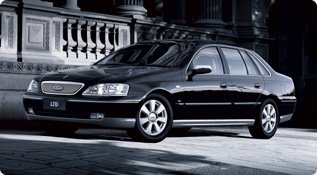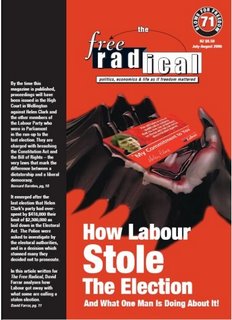Not PC has done a great job of fisking the anti-sprawl dogma that completely dominates most NZ, Australian, UK and many US local authorities, who have taken on the mantra that says:
.
1. The problem with cities is that people "drive too much" and use "too much land". They use too much energy.
2. Less land and less driving would occur if everyone lived closer together, and the places they want to go (work, shops, leisure) were all sited in centres.
3. People should lived in high density housing around corridors for public transport, which is a good thing, because it means people don't drive.
4. The best public transport is rail, because it just is, it doesn't involve roads. It is also the most expensive, but don't let that put you off, people like trains more so it is worth paying 3-4x the cost of buses. You need lots of people living close together near railway stations all wanting to go to the same places.
5. People buying big houses with sections on their own are bad, because it wastes land and energy, and they are far away from everyone else - this means they drive needlessly and are "dependent" on their cars. People in apartments living on top of each other are good, because the use less energy and can walk places more.
.
What they ignore is that high density living doesn't mean people don't want cars, also because planners want you to live in an apartment doesn't mean you do. People still want houses and they don't want to live next to the railway.
.
An article in the Toronto Globe and Mail by Margaret Wente continues to make the point:
"The idea that people will use public transit to get to work ignores the fact that most people don't want to live near their work. And because people are so mobile, they no longer have to. On top of that, people use their cars for much more than commuting. According to one study, 20 per cent of all trips by auto are for work, 20 per cent for shopping, and 60 per cent for things that are "social." The idea that public transit can replace the car in people's busy lives is a fantasy."
.
Indeed it is, you see public transport can be sustainable and profitable (unsubsidised). Half of the buses in Auckland used to be like that, until the ARC started pouring money into rail and making some of the bus routes no longer viable. Hong Kong and Singapore's metros make profits. The London Underground is not far short of breaking even too.
.
PC blogged about the book by Robert Bruegmann: Sprawl a Compact History. Margaret Wente quotes from it:
.
"Very few people believe that they themselves live in sprawl. Sprawl is where other people live, particularly people with less taste and good sense than themselves. Much anti-sprawl activism is based on a desire to reform these other people's lives"
.
Indeed, and Wente herself is pretty good on figuring out what the solutions to urban air pollution and congestion actually are. She said:
.
"If we really wanted to tackle smog and congestion, we wouldn't be fantasizing about massive new investments in public transit. We'd be investing in transportation infrastructure, less polluting fuels, more intelligent roads and vehicles with sensors to control traffic flows, peak-time user fees and more flexible forms of public and private transport, such as group taxis. But you won't find the planners talking about these things because, to do so, they would have to concede defeat to the unwholesome lure of the automobile -- to say nothing of the overwhelming preference of the public. And that would be very, very wicked."
.
Given I have heard one of the Green Party's key advisors on transport say that anyone who owned a car with an engine above 1.3 litres is evil, then I find it hard to believe that those on a mission to promote trains and not roads, are simply just on a crusade. Private transport is hear to stay, it is roads that need to be managed better.







